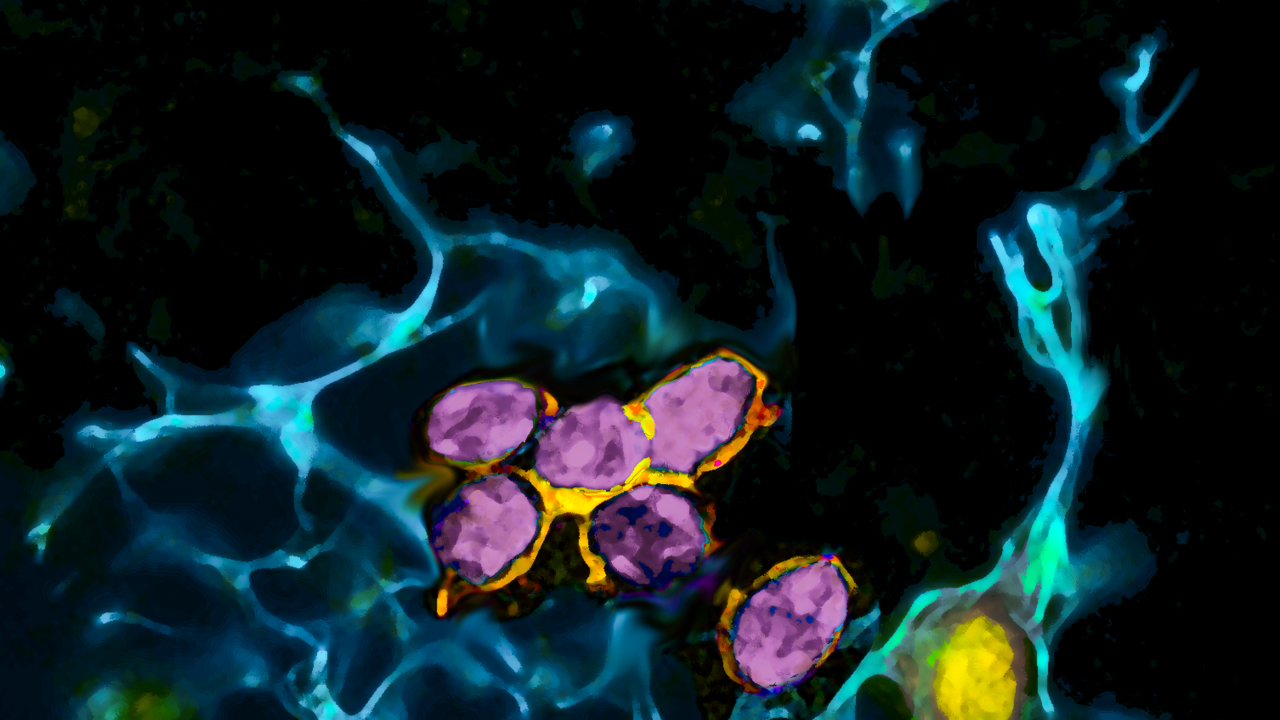Research
Our research is focused on understanding changes in immune tolerance that lead to autoimmune destruction of pancreatic insulin-producing beta cells in type 1 diabetes (T1D). We are combining directed differentiation of human pluripotent stem cells into cell types relevant to T1D with genome engineering approaches to model the human disease. We are also developing strategies to produce immune evasive stem cell-derived pancreatic beta cells to accelerate clinical translation of cell therapies to treat diabetes.
Modeling Autoimmune Pathogenesis and Beta Cell Destruction by T1D Immune Systems
Understanding the initiation and progression of human T1D has been hampered by the lack of appropriate models that can reproduce the complexity and heterogeneity of the disease. One of our projects is thus focused on creating new state of the art humanized models that incorporate stem cell-derived derivatives relevant to T1D, including thymic epithelial cells, which are critical to the development of new self-tolerant T cells, and pancreatic beta cells.
Creation of immune evasive stem cell-derived beta cells for the treatment of diabetes
Successful clinical translation of stem cell therapies requires overcoming the major roadblock of immune rejection due to alloimmune responses and islet-specific autoimmune responses against transplanted beta cells present in patients with T1D. We are thus taking advantage of recent advances in genetic engineering methods to create immune evasive stem cell grafts, potentially allowing their survival in the absence of long-term immunosuppression.

